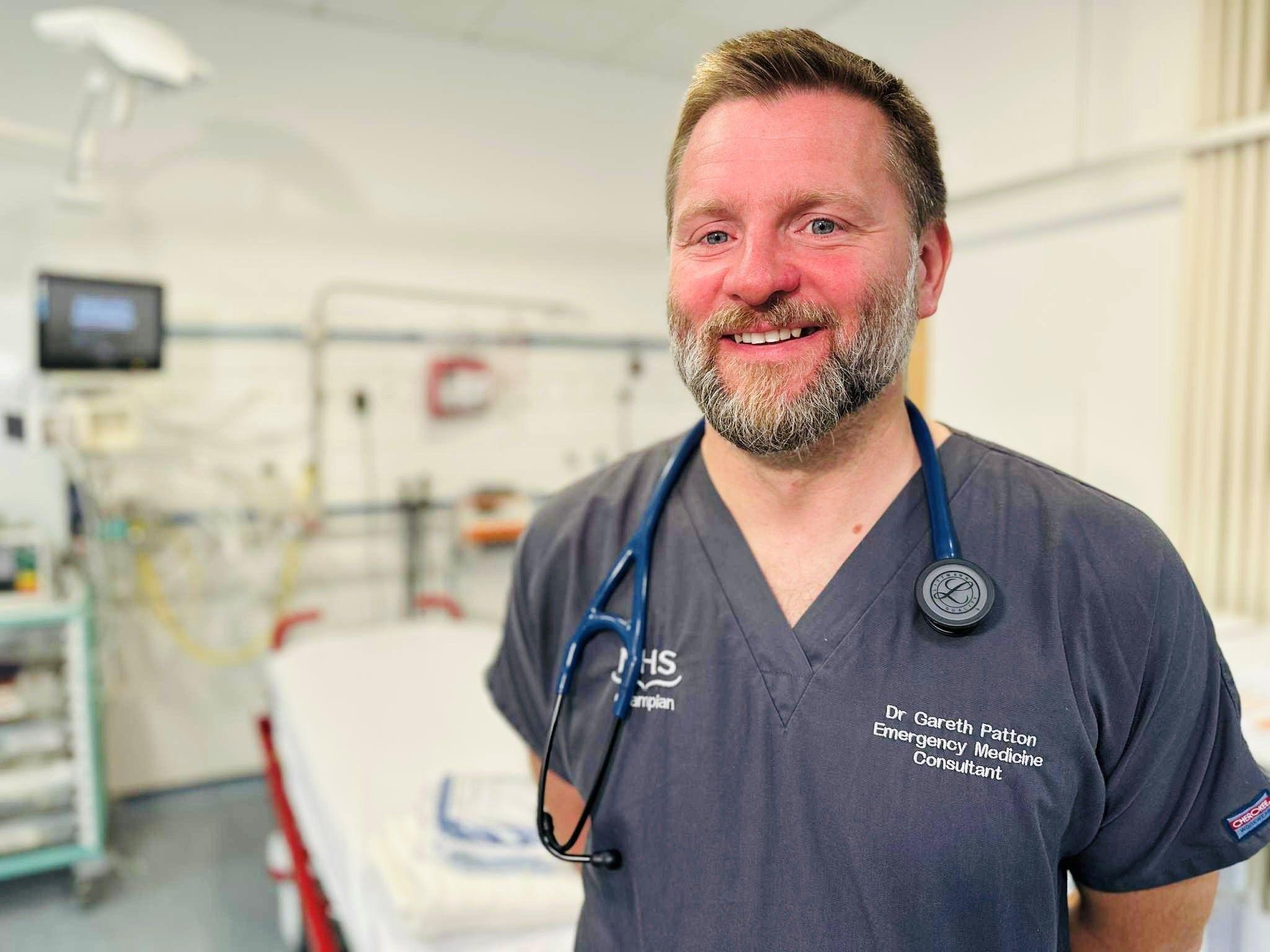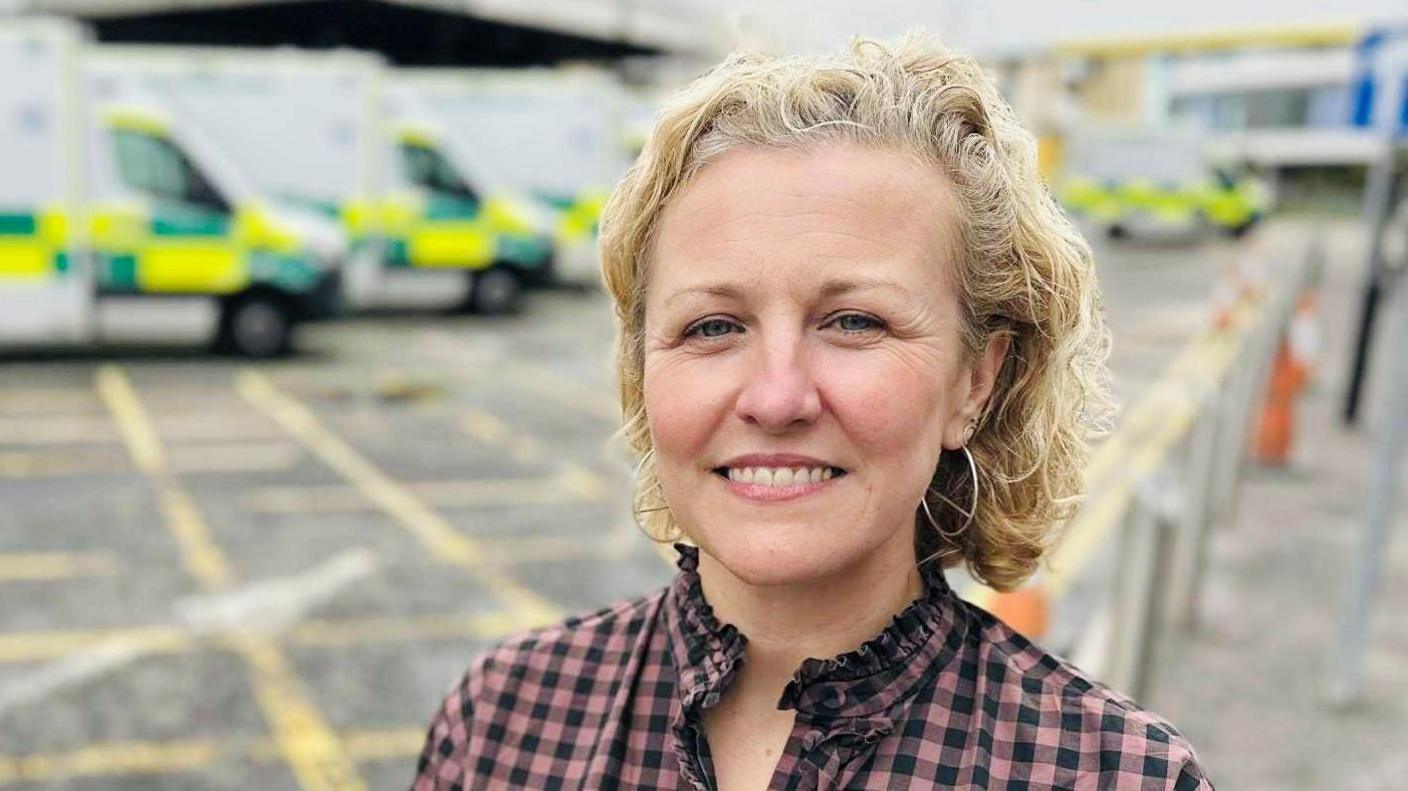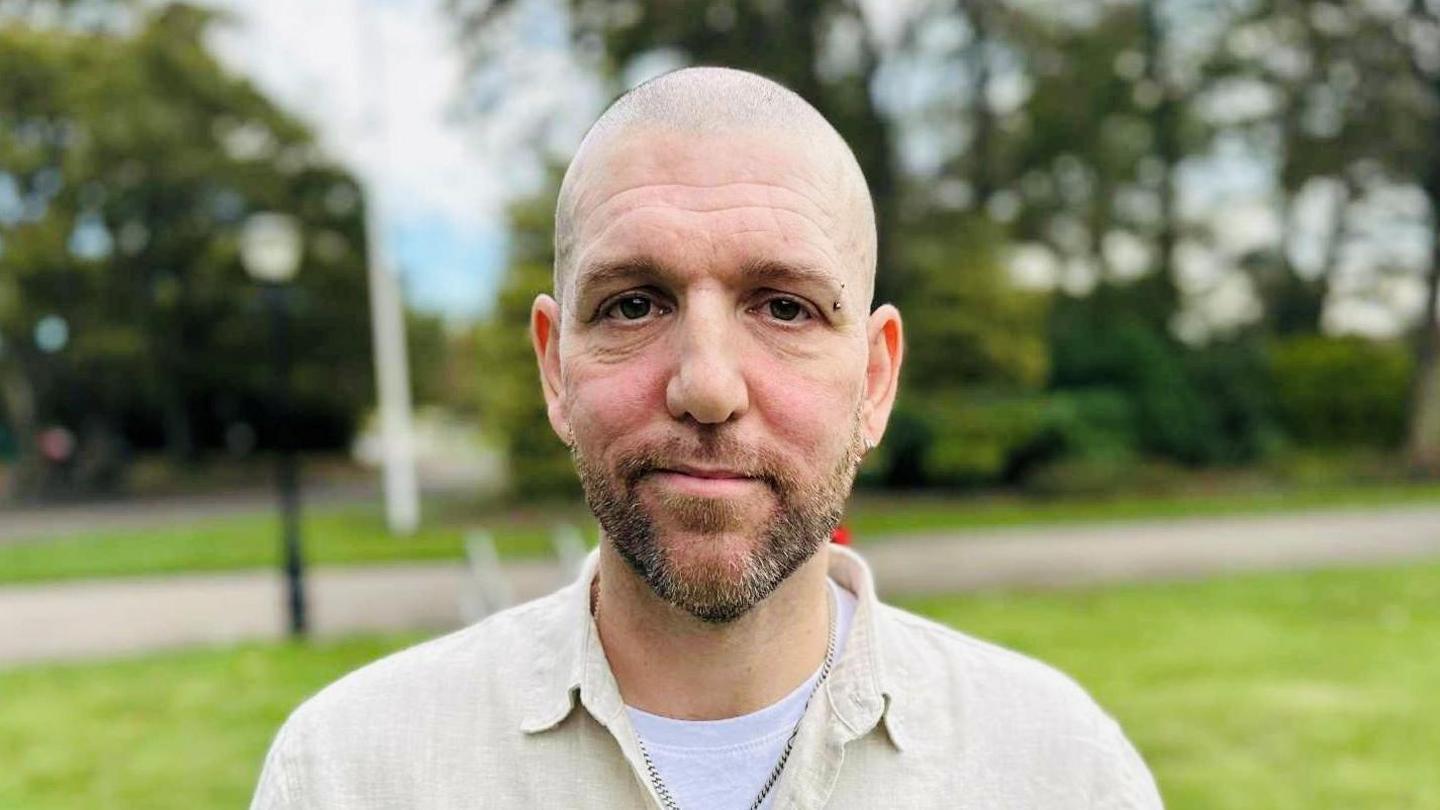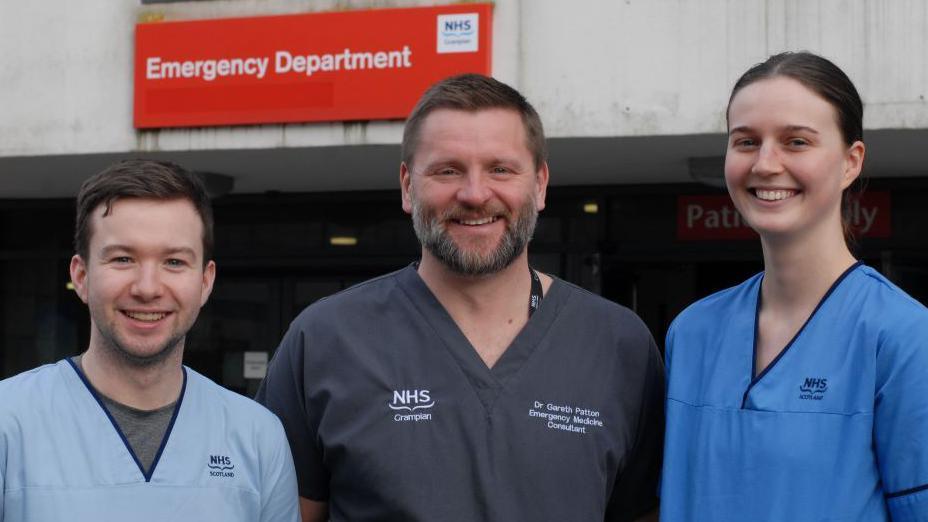Aberdeen A&E is first to introduce routine HIV testing

Consultant Gareth Patton said the work could have a big impact on lives
- Published
Patients treated in A&E in Aberdeen will be the first in the country to be routinely offered a potentially life-saving test for HIV and Hepatitis B and C.
It follows a successful trial at Aberdeen Royal Infirmary last year during which around 25 people were found to have previously undiagnosed blood-borne viruses.
The tests will be carried out on people who already need a blood test but patients can choose to opt out.
The Scottish government said it would fund the initiative until the end of March 2027, when it will be reviewed.
A spokesperson added that it will be rolled out across Lothian and Glasgow areas by March.
Gareth Patton, an A&E consultant at Aberdeen Royal Infirmary, said some people are unaware they have a blood-borne virus as they experience no symptoms.
"This opportunistic testing gives us a chance to identify that early before any complications or problems with the virus later," he told BBC Scotland News.
"Any patient presenting in the emergency department who needs to have some blood tests performed as part of their standard work up will be asked if they are happy to have their sample sent away for testing for the three viruses.
"It's one additional tube of blood."
Dr Patton said something that could be done in a short amount of time could potentially have a "huge" impact on a patient's life in the long-term.
Around 4,500 people were tested during a three-month trial in the emergency department last year.

Daniela Brawley said it was an important initiative
Daniela Brawley, a consultant in sexual health and HIV, said: "Although we are a relatively low prevalence area for those blood-borne viruses, it's still really important that we offer people the opportunity to test and be diagnosed.
"And we know from our pilot findings last year that actually we found more of those infections than we thought we would."
She said there was still some stigma around viruses like HIV and Hepatitis B and C.
She hoped that by "normalising" testing and making it something everyone gets, it might help to reduce that stigma.

Deejay Whittingham hailed the move as "fantastic"
Deejay Whittingham, chief executive of the local Four Pillars charity, which supports the LGBT community, was diagnosed with HIV in 2009.
"I think it's a fantastic initiative," the 44-year-old said.
"Had I been detected earlier by a routine check in the hospital then they would have caught it earlier and I would have been on medication sooner."
He added: "Things were so much different back then. I got told by my GP that I had 10 years to live.
"Obviously that's not the case because medication has come on. It's 2025 and I'm still here."
A Scottish government spokesperson said: "We are pleased that NHS Grampian is rolling out emergency department opt-out testing.
"This life-saving initiative will also be rolled out across the Lothian and Glasgow areas by March and will expand further if the evidence supports it.
"Funding has been agreed until the end of March 2027, with the intention to review the evaluation at that point."
Related topics
- Published12 February 2024
